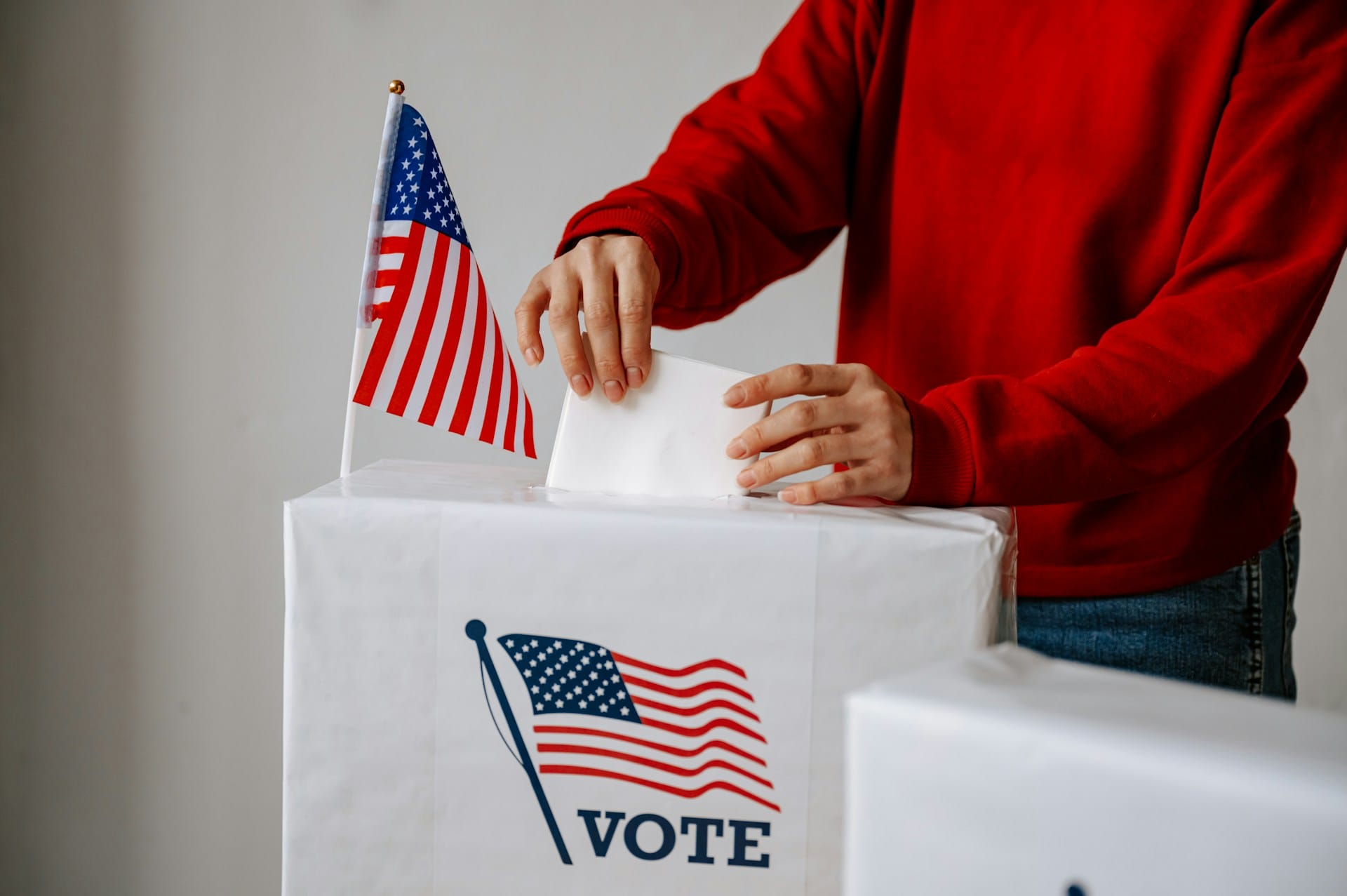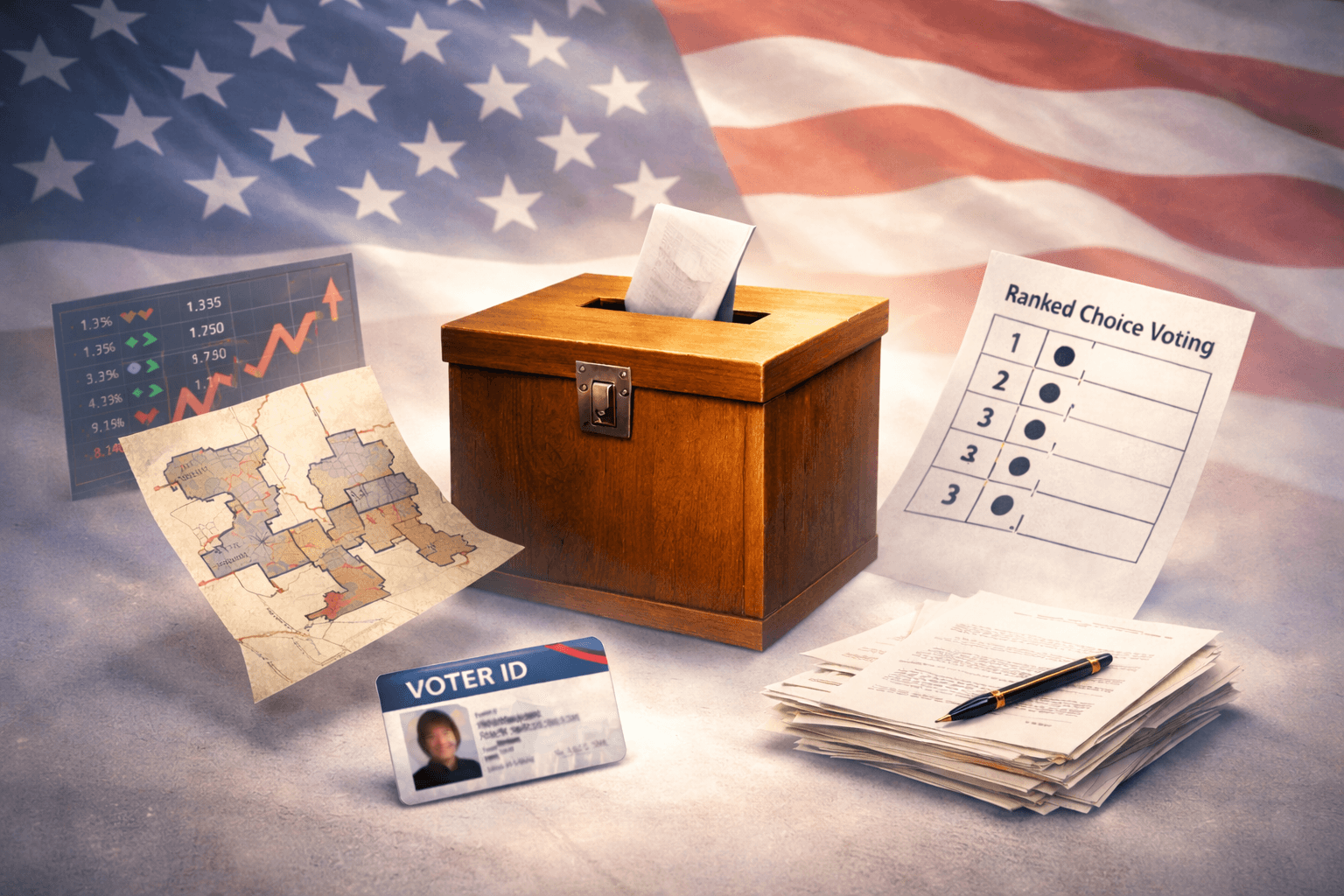Nevada Dems Block Independent Redistricting from Going before Voters – Again!

With deep frustration, Vote Nevada PAC announced it is withdrawing its ballot initiative to create an independent redistricting commission -- a proposal meant to bring openness, accountability, and fairness to how Nevada’s political maps are drawn.
Instead of voters having a direct say, the group says Nevadans remain stuck with a process that happens behind closed doors, controlled by legislative leaders, and prone to partisan abuse.

“We wanted Nevadans working with legislative leaders to draw district maps after each census, in open meetings, and with the focus on fair representation,” writes Sondra Cosgrove, Doug Goodman, and Claire Thomas – all leaders in Vote Nevada.
Once again, however, the Nevada Democratic Party is using a misguided Nevada Supreme Court ruling to not only endorse the current, behind-closed-doors, and therefore corrupt redistricting process, but also to eliminate our right to amend the state constitution through the initiative process.”
The latest initiative represented the fourth attempt to get independent redistricting on the ballot. In 3 of these instances, state Democrats sued to block the measure from going before voters.
“Putting Taxes in the Constitution Is Ludicrous”: Why the Initiative Was Withdrawn
Vote Nevada’s proposal would have required maps to be drawn in open meetings, with citizens and legislative leaders working together to ensure fair representation. Specifically, here is what the amendment proposed:
- Replace the legislature’s closed-door redistricting process with a balanced independent commission, equally composed of Democrats, Republicans, and non–major-party Nevadans.
- Transfer redistricting authority and funding from the legislature to this new independent body.
- Limit redistricting to within 180 days of the decennial U.S. Census—effectively banning mid-cycle redistricting and political map manipulation.
But a lawsuit filed by the Nevada Democratic Party challenged the effort, leaning on a 2022 Nevada Supreme Court ruling that redefined the limits of citizen-led ballot initiatives.
In Education Freedom PAC v. Reid (2022), the court interpreted Article 19, Section 6 of the state constitution to mean that ballot initiatives amending not just statutes, but also the Constitution, must identify new taxes if their implementation could cost even $1 in state funds.
That interpretation, the Vote Nevada argues, effectively blocks citizens from pursuing constitutional amendments on key government reforms -- unless they are willing to enshrine new tax law into the state constitution itself.
The problem with that? If a proposed amendment adds a new tax into the state constitution, it can be challenged for violating the state’s single-subject rules for ballot measures. It’s a no-win situation for many policy reform efforts.
In its statement, Vote Nevada called the requirement an absurd and dangerous precedent.
Putting taxes into the Constitution is an irresponsible and ludicrous proposition. Nevadans are well aware of the issues we face because our mining tax is enshrined in the state Constitution. Based on that experience, we would never believe that putting more taxes in our Constitution is a sound idea.”
The PAC said there is no clear legal guidance on how such a requirement would even be applied in practice, leaving reformers trapped between judicial ambiguity and partisan lawsuits.
Vote Nevada accuses Democrats of weaponizing the courts to silence reformers and preserve a system that it calls “plainly corrupt,” and has been found to be an incumbent protection scheme that benefits those in power and party donors over voters.
Suing to silence the voices of the people may be a smart political strategy, but it ultimately undermines democracy. Both parties should review this country’s history to be reminded that neither is entitled to use apportionment to accrue power that puts donors over voters.”
The group insists that the plain-language reading of Article 19, Section 6 applies only to statutory initiatives – not constitutional amendments. Its leaders argue that the court’s reinterpretation is “misguided” and incompatible with the state’s tradition of citizen-driven reform.
The effort to put independent redistricting on the state ballot comes in the midst of a mid-decade redistricting fight with Texas, California, Missouri, and more states trying to or considering a gerrymander outside the normal timeframe with partisan advantage at stake.
When polled, 82% of voters in the U.S. say they want to see a nonpartisan commission redraw electoral maps, not the party in power.
Vote Nevada’s Amendment to Protect Equal Voting Rights for Independents Survives
The independent redistricting measure was filed alongside another constitutional amendment that enshrines the right to vote in taxpayer-funded primary elections to all voters by updating the state's Voter Bill of Rights, which Nevadans added to the state constitution in 2020.
It adds the following: “12. To fully participate in all publicly funded elections without limitation, including, but not limited to, any requirement to affiliate with any private organization, such as a political party.”
Along with using legislative redistricting, Nevada also has a closed primary system that shuts out the largest registered voting bloc in the state – independent voters and voters registered with another party than Republican and Democrat.
Simply put, the amendment requires the legislature to approve an open primary system for the state, whether that means opening taxpayer-funded partisan primary elections to all voters or getting rid of partisan primaries completely in favor of a nonpartisan system.
This measure survived the legal challenge phase which clears it for petition signature gathering.
Vote Nevada Says It Isn’t Giving Up
Vote Nevada says it will not abandon the fight for fair maps. Instead, it is exploring how best to challenge the court’s interpretation—potentially through another constitutional amendment to clarify Article 19’s original intent.
“The current misguided interpretation of this critical right cannot be allowed to remain unchallenged,” the PAC stated. “We are exploring the most effective way to move forward by addressing this error in a way that does not cause the Democratic Party to sue once again to silence us.”
For now, the withdrawal of the Independent Redistricting Commission initiative leaves Nevadans without a clear reform option on the ballot, as partisan gerrymandering battles intensify across the nation.
 Shawn Griffiths
Shawn Griffiths






